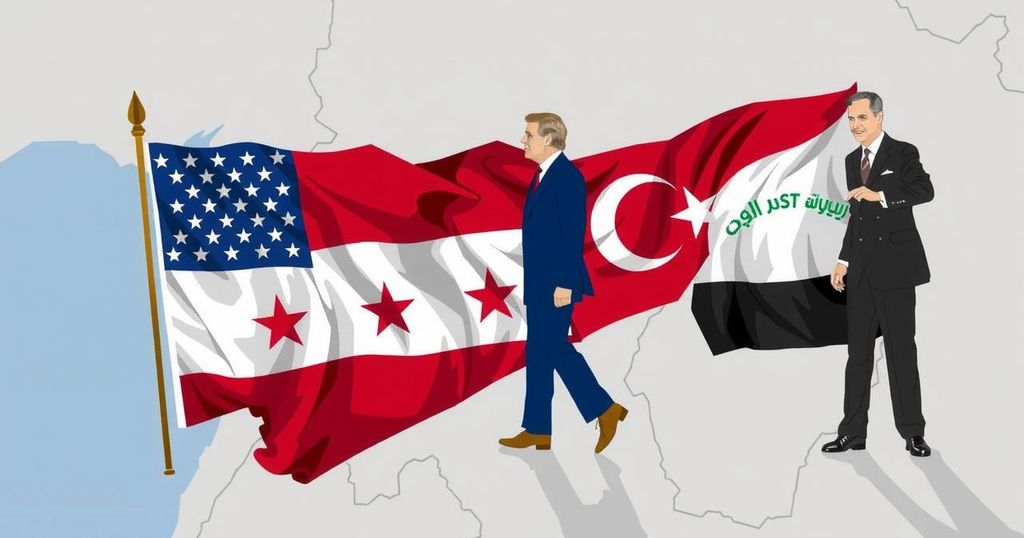International Officials Support Peaceful Transition in Syria

US, Turkey, and Arab officials converge in Jordan to endorse a peaceful transition in Syria, highlighting the need for inclusive governance and regional stability. Key concerns revolve around preventing chaos similar to Libya’s post-conflict scenario and ensuring the representation of all sectarian groups. Direct contacts with HTS were confirmed, but skepticism remains regarding its commitments amidst regional absences from discussions, such as Iran and Russia.
Officials from the United States, Turkey, and several Arab nations have reached a consensus on supporting a peaceful transition in Syria during discussions held in Aqaba, Jordan. Jordanian Foreign Minister Ayman Safadi emphasized the collective aim to prevent Syria from spiraling into chaos, highlighting a joint commitment to facilitate an inclusive governance structure that respects minority rights and counters terrorism.
US Secretary of State Antony Blinken affirmed that direct communications with the rebel organization Hayat Tahrir al-Sham (HTS), responsible for leading the offensive against President Bashar al-Assad’s regime, had taken place. The discussions underscored the critical requirement for a representative governance framework within Syria in light of recent upheavals.
During the talks, Iraq’s Foreign Minister Fuad Hussein expressed regional concerns regarding Syria’s stability, underscoring a shared unwillingness to witness a situation reminiscent of Libya’s post-Gaddafi chaos. Turkish Foreign Minister Hakan Fidan advocated for the preservation and reform of existing Syrian institutions, stressing the importance of preventing terrorism from exploiting the transitional phase.
Despite HTS showing intent towards establishing an inclusive government, skepticism lingered due to its history of violence. Blinken noted that communications with HTS had occurred, especially concerning the case of the missing American journalist Austin Tice; however, the US has not yet lifted the designation of HTS as a terrorist organization.
Importantly, the discussions in Jordan proceeded without Syrian representation, with eight Arab nations participating and expressing hopes for a unified Syria free from sectarian divisions. The absence of major backers of Assad, namely Iran and Russia, further highlighted the intricate dynamics at play. For any realistic hope of progress for the Syrian populace, the emerging political structures must achieve external and internal cohesion, ensuring they build upon the aspirations for freedom that surfaced in recent times.
The political landscape in Syria has been turbulent since the onset of its civil war, with numerous international players involved in the conflict. The emergence of various factions, including HTS, has complicated the situation, as these entities grapple with internal governance issues while striving for external recognition and support. The recent meeting in Jordan among US, Turkish, and Arab officials marks a significant step toward establishing a collaborative approach to aid the Syrian transition and prevent further chaos. Regional stability is critical not only for Syria but for the broader Middle Eastern context post-conflict.
The dialogue held in Jordan represents a pivotal moment in the ongoing quest for stability in Syria. By prioritizing a peaceful transition toward an inclusive government and acknowledging the multidimensional nature of the crisis, the participating nations have signaled a commitment to safeguarding Syria’s future. However, without cohesive strategies that involve both internal factions and external stakeholders, achieving desired outcomes for the Syrian people remains a formidable challenge.
Original Source: www.bbc.co.uk








